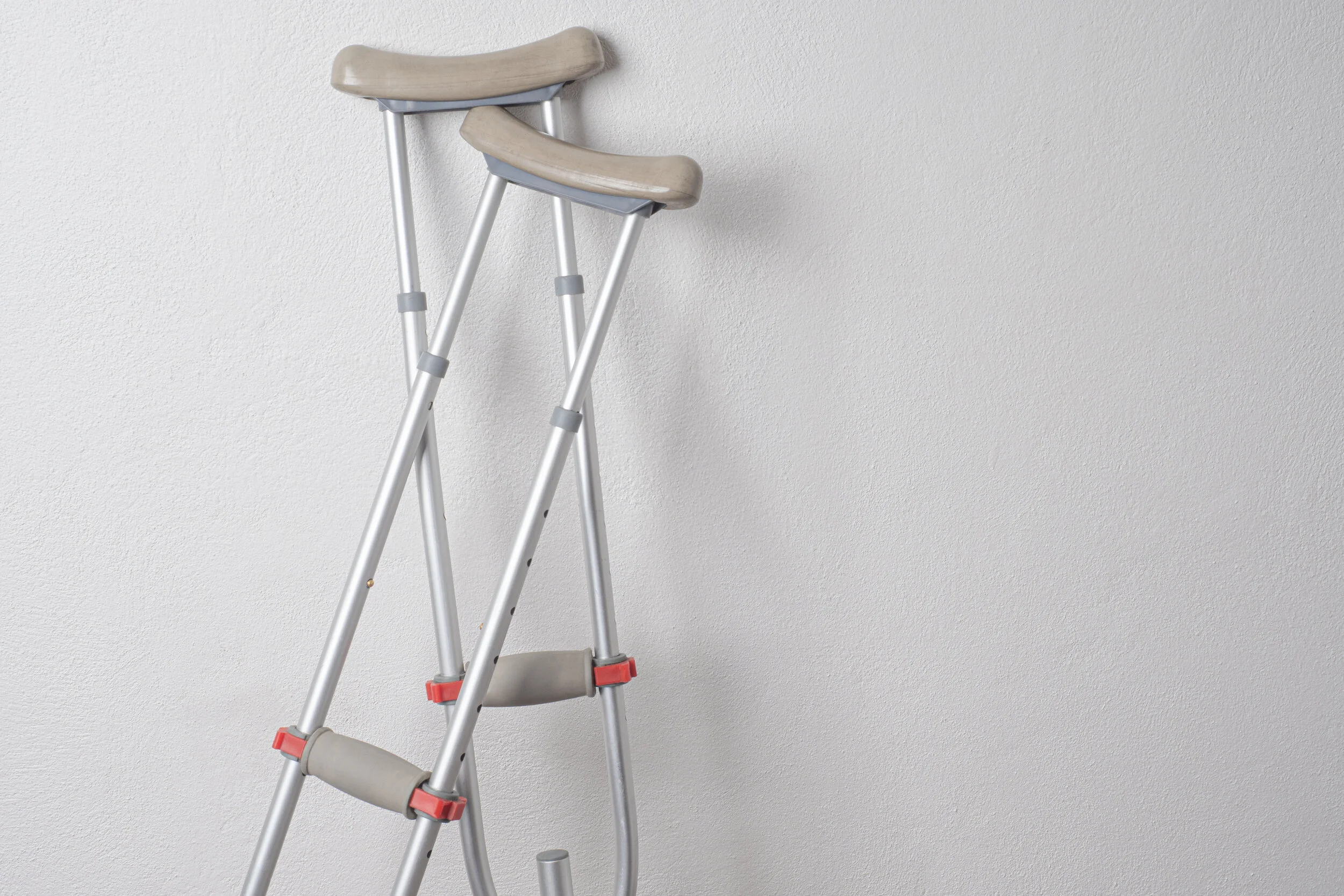No, not those crutches. The bones I have broken are all arm/hand related, so I have never had to use those kinds of crutches. I’m talking about psychological crutches. You know – the tools we think will make our goals, chores, or treatment tasks easier, but ultimately end up expensive corner-cutting measures that only interfere with the sustainability and progress toward the goal.
Most crutches are harmless. I used an auto injector to give insulin shots for a long time because I was too much of a weenie to press the plunger myself. And many people (ahem, you know who you are) take more vitamin supplements than they need because they think it helps them stay healthy.
But there is a point at which some of those crutches cross a line and actually start causing harm. Sometimes it’s when you overbalance with some of those supplements. Sometimes it’s when you end up spending money you don’t have on a piece of exercise equipment you won’t use. And sometimes, it’s enlisting professional help when you know very well what needs to be done because the professional has been telling you the same thing for over a decade.
Let me elaborate on that last one. It’s no secret that external structure and motivations work better for me than internal ones. That is not uncommon. Many people are more likely to act when someone tells/asks them to do something than to do it just because, especially if internal consequences aren’t immediate or obvious. But a few years ago, I realized that I might be using some of my best resources as a safety blanket as opposed to a tool that was advancing my health. There were two, actually.
First was my nutritionist. I’ve been working on how nutrition works in my body for three decades, since my diagnosis with diabetes. There’s just not that much left to learn. Yes, bodies have a tendency to change as they age, but the basic concepts don’t change: balance macronutrients, everything in moderation, carbs spike blood sugar more than fat or protein. Going over behavior every week and making micro adjustments is not something I need professional help to do.
Second, believe it or not, was my therapist. I have spoken before about how important mental health is in chronic and autoimmune treatment. I strongly believe that every diagnosis comes with a forced adjustment to identity. But after one more conversation about my tendency to use crutches, I realized that we had been having the same conversation every visit for the last few years. I had reached a point where I could recognize self-destructive patterns, make conscious decisions even if they were negative (so I maintained control), and that I was in a constant state of having one foot on the gas – what I wanted to do – and one foot on the brakes – my natural and strong risk aversion. I had mostly eliminated the word “should” from my internal discourse, or at least caught myself when I used it. And I had developed tools to evaluate where I was and move forward. Add to that the expense of treatment and the sketchy reimbursement patterns of my insurance company, and I started to think about whether I could step away for a while.
It was scary, but I wanted to try. I did well for a while. But then I needed to go back. I have been out of work for over a year and my anxiety was starting to keep me from sleep, which can destroy healthy treatment regimens. I was doing this thing where I would go to sleep on time, wake up at two in the morning, not be able to go back to sleep for a couple of hours, and then get a couple more hours. Even if I got a decent number of hours, I never felt rested. I had started using caffeine to get through days, which is something I had avoided since I addicted myself to NoDoz in high school (when my blood sugars were totally out of control which made me exhausted no matter how many hours of sleep I got). I wanted to talk it out because I couldn’t seem to get past it on my own. My therapist’s reaction: so what? Lots of people are sleep deprived and lots of people use caffeine as a crutch to help them get through the day. Just ask Starbucks or Dunkin Donuts.
We did discuss the root of my anxiety – something for another day, maybe next week? – and understanding helped. I remain sleep deprived, but I am not as anxious as I was. I guess the lesson is that sometimes crutches are ok. You just need to find the right balance.
(And maybe someday, I will use that aero trainer I just bought.)

